Middle East
Brother of Israeli hostage visits D.C.
Gili Roman says his sister supported him when he came out
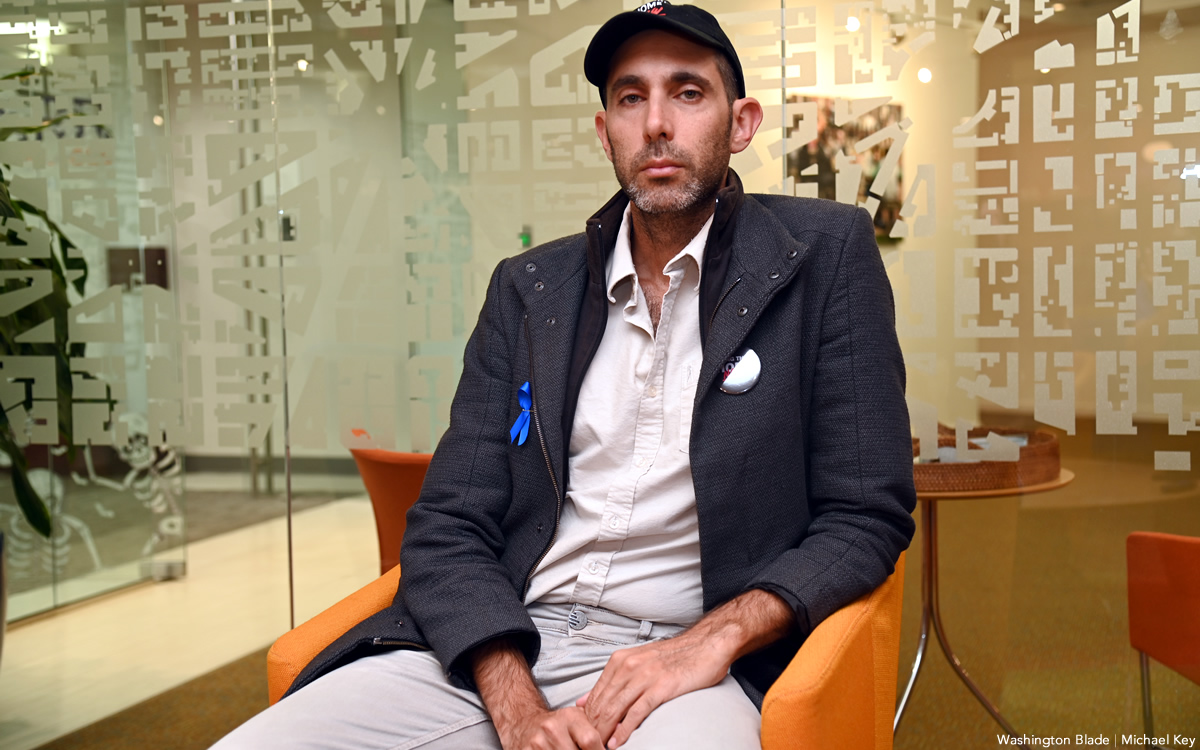
Gili Roman and his sister, Yarden Roman-Gat, have always been close.
“We are best friends,” Roman told the Washington Blade on Monday during an interview in D.C. “We understood each other without words, with words. We always stand for each other.”
Roman was 26 when he came out as gay to his parents. He told his sister several months later when they were on vacation in Vietnam. Roman said she was “very angry at me that I came out to our parents before I told her.”
“She said, ‘I don’t believe you told me after our parents,'” recalled Roman. “With my parents it wasn’t easy, but with her it was super easy and she was super excited for me because she wanted me to have this open and happy life.”
Roman spoke with the Blade less than a month after Hamas militants kidnapped his sister.
Roman-Gat and her husband, Alon Gat, lived in Be’eri, a kibbutz that is near the border between Israel and the Gaza Strip, for four years. They and Gefen, their 3-year-old daughter, moved in September because of what Roman described as “all the safety issues, and the missile attacks.”
“She wasn’t willing to tolerate that anymore,” said Roman.
‘For us it’s like a Holocaust story’
Roman-Gat, a physical therapist who works with elderly people and those with physical and mental health issues, and her family had just returned to Israel after a vacation in South Africa when they decided to spend the Simchat Torah holiday with Gat’s parents in Be’eri. They were in their home on Oct. 7 when Hamas launched its surprise attack.
Roman, 39, lives in Tel Aviv, which is roughly 50 miles north of Be’eri. He said air raid sirens woke him and his sister up at around 6:30 a.m. on Oct. 7.
“When it happens, usually we send a text message to find out that they’re also fine because for them, the time to get to the shelter is much shorter.” said Roman, noting people who live around Gaza have seconds to take shelter when militants launch a rocket. People who live in Tel Aviv have 90 seconds to seek refuge. “After the second missile alarm, I turned on the TV and understood that this is not the regular routine.”
“We started to see terrorists infiltrating different towns around the kibbutz,” he added.
Roman in a series of text messages to his sister asked her if she had locked the door to the safe room to which she and her family had gone and whether anyone had a weapon. Roman-Gat texted her brother every 30 minutes in order to keep their family updated about what was happening.
“She would text me either a heart or a small conversation,” recalled Roman.
Roman said he last heard from his sister at around 10 a.m. He told the Blade the “terrorists entered the house and took them” about 20 minutes later.
“At first I just thought that they lost connection,” said Roman. “We didn’t know exactly what happened.”
Roman, a member of the Israel Defense Force’s reserves, said he was preparing to deploy to the country’s border with Lebanon with his unit when he and his family “started to understand that something really bad was happening in Be’eri.” Roman-Gat’s father-in-law later told Roman he had been “separated from the rest of the family.”
“He was still in the house, and he saw all of his family members taken separately,” said Roman.
Roman told the Blade he received a video a few hours later that showed his sister’s mother-in-law and three of her neighbors “being taken through the street next to their house with a few terrorists surrounding them.” He said Israeli media reports incorrectly suggested the militants took them to the kibbutz’ dining hall and planned to negotiate their release.
Roman said Gat called him at around 7:30 a.m. on Oct. 8 and told him what had happened the previous day.
Media reports indicate four militants placed Roman-Gat, Gat, their daughter and two other Be’eri residents into a car. One of them had reportedly been placed into the trunk.
Roman-Gat and Gat jumped out of the car with their daughter as it approached Gaza. Roman said the militants began to run after them. He told the Blade they were shooting at them when his sister handed her daughter to her husband because he was able to run faster.
Gat hid with his daughter for 18 hours before they reached IDF soldiers at Be’eri. He told Roman he last saw his wife hiding behind a tree to protect herself from the militants who were shooting at her.
“For us it’s like a Holocaust story,” said Roman. “It’s a horror story, the worst horror story that you can imagine … the evil of it, of running, chasing an innocent family with a family.”
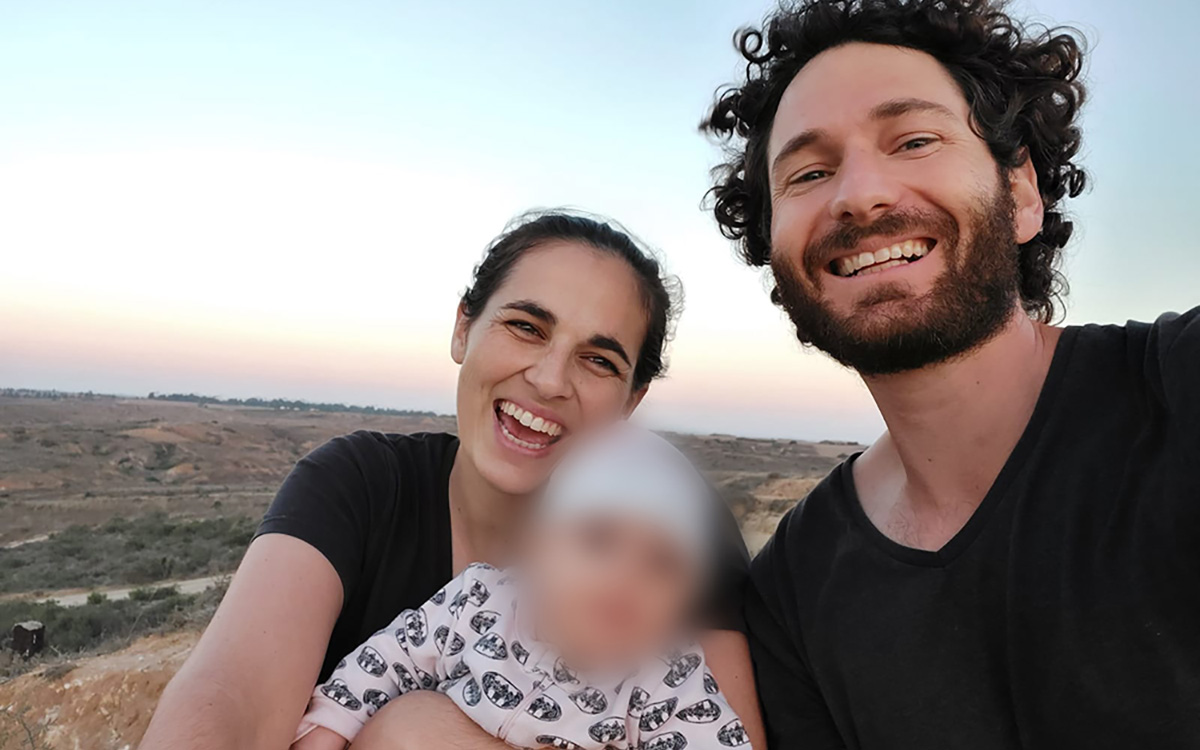
Roman told the Blade he put on his IDF uniform and drove to Be’eri on Oct. 8.
“Once you started to go to the South, it was like what you’ve seen in the movies: Battlefields, everything was on fire,” he recalled. “You saw bodies scattered along the along the road, and you saw the cars all scattered with bullets because people were killed while driving.”
Hamas militants were still around Be’eri when Roman arrived. He said two of them “tackled” them and “were shooting at us.”
“The officers had to get out of the car, kill them and get back,” said Roman.
He said it took a couple of days for the IDF to clear the militants from the area. Search crews were then able to mount large scale searches for those who were killed or kidnapped.
Roman said his brother-in-law was able to find the tree behind which Roman-Gat had been hiding. He told the Blade the searchers determined the militants had once again captured her and brought her into Gaza because they found her bare footprint next to a shoe print.
“They saw they didn’t go much farther from the tree,” said Roman. “They assume that somebody was carrying her.”
Roman said Hamas on Oct. 10 released a video that showed his sister’s mother-in-law and her three neighbors with whom she had been taken at the “end of the street in their own pool of blood.” Roman told the Blade that her husband and sons saw it on social media.
The militants also kidnapped Roman-Gat’s sister-in-law. Roman said the family believes that she too is now in Gaza.
Gat and his daughter are now living with Roman’s father at his home in Givatym, a city that is just outside of Tel Aviv.
Roman said his niece understands there were “bad people in front of their house, their safe place and took them and she was supposed to hide.” He also said she knows that he and his family are working to find her mother.
“They were inseparable,” said Roman.
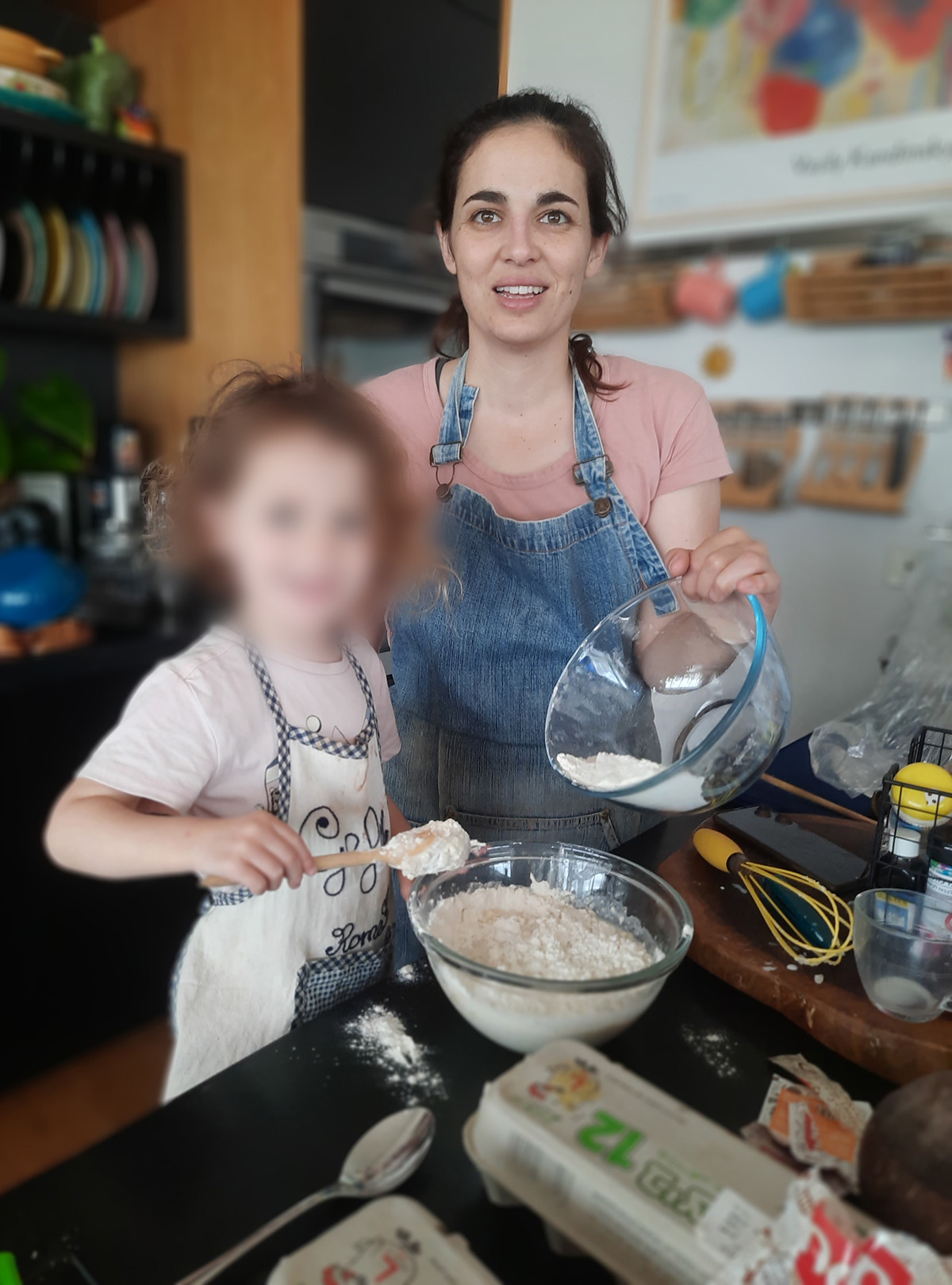
Roman’s mother passed away 10 months ago. He said his niece was “very close to both of” her grandmothers.
Roman told the Blade his sister’s father-in-law is “doing his best.” He said he visits his family in Givatym every day.
“He’s a refuge in his own country,” said Roman. “He lost his wife, and his daughter is kidnapped and his daughter-in-law is kidnapped. It is very, very tough on him.”
Roman, 39, is a teacher who was previously the principal of the Eastern Mediterranean International School near Tel Aviv.
The school’s mission is to make “education a force for peace and sustainability in the Middle East.” Israelis, Palestinians and Arabs are among the students.
Roman has been a member of the Nemos LGBTQ+ Swimming Club for the last five years.
The Jewish Federations of North America brought Roman and his cousin to the U.S. They will travel to New York before returning to Israel next week.
CNN’s Jake Tapper is among the other reporters with whom Roman has spoken about his sister, who is also a German citizen. Roman noted he celebrated her 36th birthday last month when he spoke at a pro-Israel rally in Berlin that more than 20,000 people attended.
“It was very powerful, but also very evident that she was not there,” he said.
Roman when he spoke with the Blade was wearing a black baseball hat that read “Bring Yarden home now.” He also had a dog tag around his neck that had the Star of David on it and “bring them home now” engraved in Hebrew.
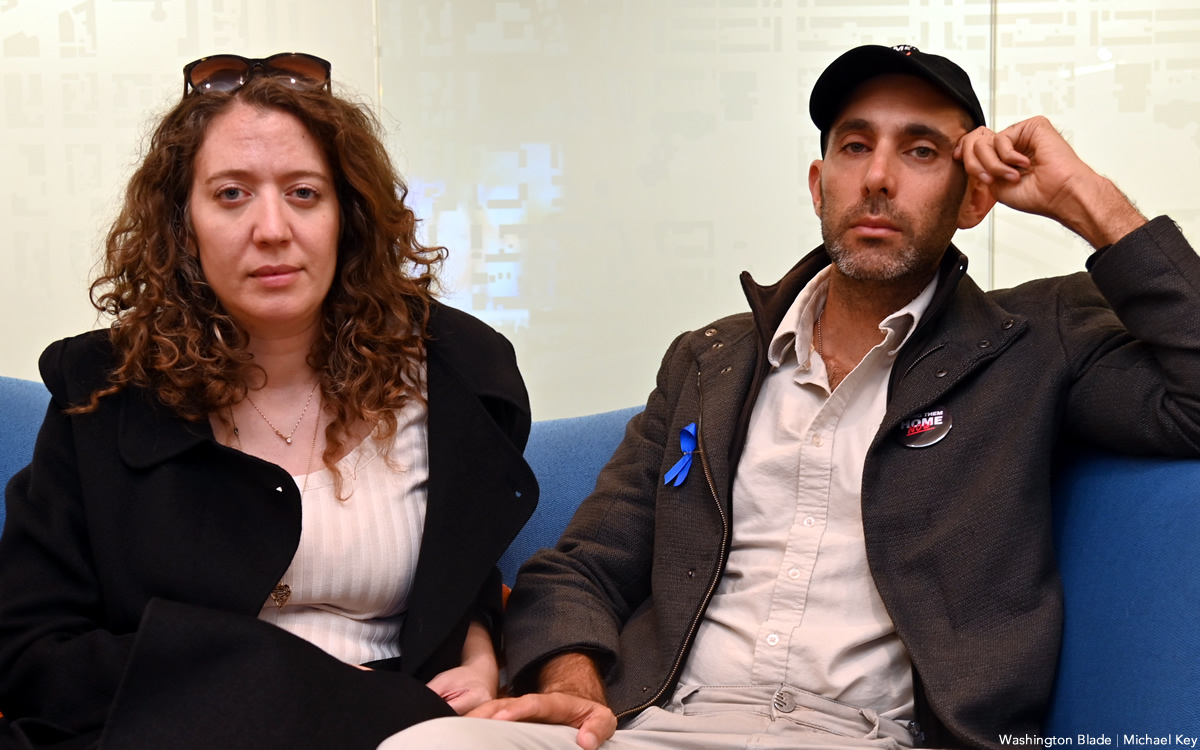
More than 1,400 Israelis have been killed since the war began. This figure includes at least 260 people who Hamas militants murdered at an all-night music festival in Re’im, a kibbutz that is a few miles away from Be’eri. Thousands of other Israelis have been injured and Roman-Gat is among the 240 people who militants from Hamas and other Muslim extremist groups kidnapped.
Hamas rockets have reached Beersheba, Tel Aviv, Jerusalem, Ben Gurion Airport and other locations throughout central and southern Israel. Media reports indicate Hezbollah, which the U.S. and Israel have designated a terrorist organization alongside Hamas, has attacked IDF posts and launched rockets from Lebanon into northern Israel.
The Hamas-controlled Gaza Health Ministry says Israeli airstrikes have killed more than 8,000 people and injured thousands of others in the enclave.
The Israeli government’s decision to cut electricity, water and food and fuel shipments to Gaza has made the humanitarian crisis in the territory even worse. The IDF’s ground incursion into the enclave began on Oct. 27.
Gazan authorities on Tuesday said an IDF airstrike in the Jabaliya refugee camp near Gaza City left hundreds of people dead or injured. The Associated Press reported the IDF said it killed a Hamas commander and dozens of other militants.
Calls for a ceasefire continue to grow louder around the world. Acts of antisemitism and Islamophobia have also increased in the U.S. and in other countries since Oct. 7.
Roman specifically applauded the Biden-Harris administration and the German government for their response to the war.
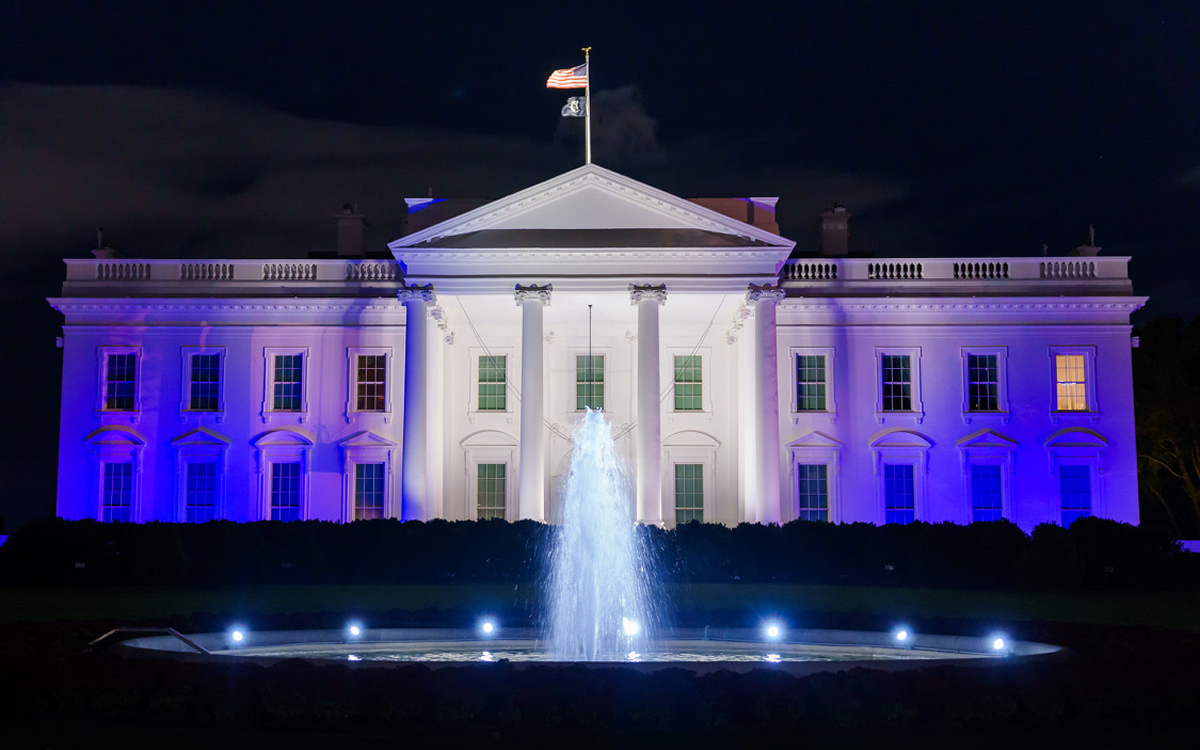
He said he “understands” and “relates” to some of the criticisms against Israel. Roman also acknowledged the “liberal world” and the “progressive world” and the global LGBTQ community “is very divided” on the war.
“I understand why people are hurting because of the lives that are lost right now in Gaza,” he told the Blade. “It’s not easy for me as well. I probably know more Palestinians than the people here.”
Roman said Hamas has “done harm to the Palestinian cause.”
“What happened in the South is not a Palestinian story,” he told the Blade. “The Palestinian ambition for liberty and for self-independence is very legitimate, but the jihadistic ambition is completely illegitimate.”
“It’s not something that anyone should justify in any way,” added Roman. “It’s pure evil, the desire to murder anyone who is either not Muslim or supports the ambition to create a Muslim empire.”
Oct. 7 was ‘the biggest failure of the Israeli state’
Roman pointed out he did not vote for Prime Minister Benjamin Netanyahu and did not support the right-wing coalition government he formed late last year. Roman also noted he supported the protest movement against the proposed reforms to the country’s judicial system that activists said would harm LGBTQ Israelis.
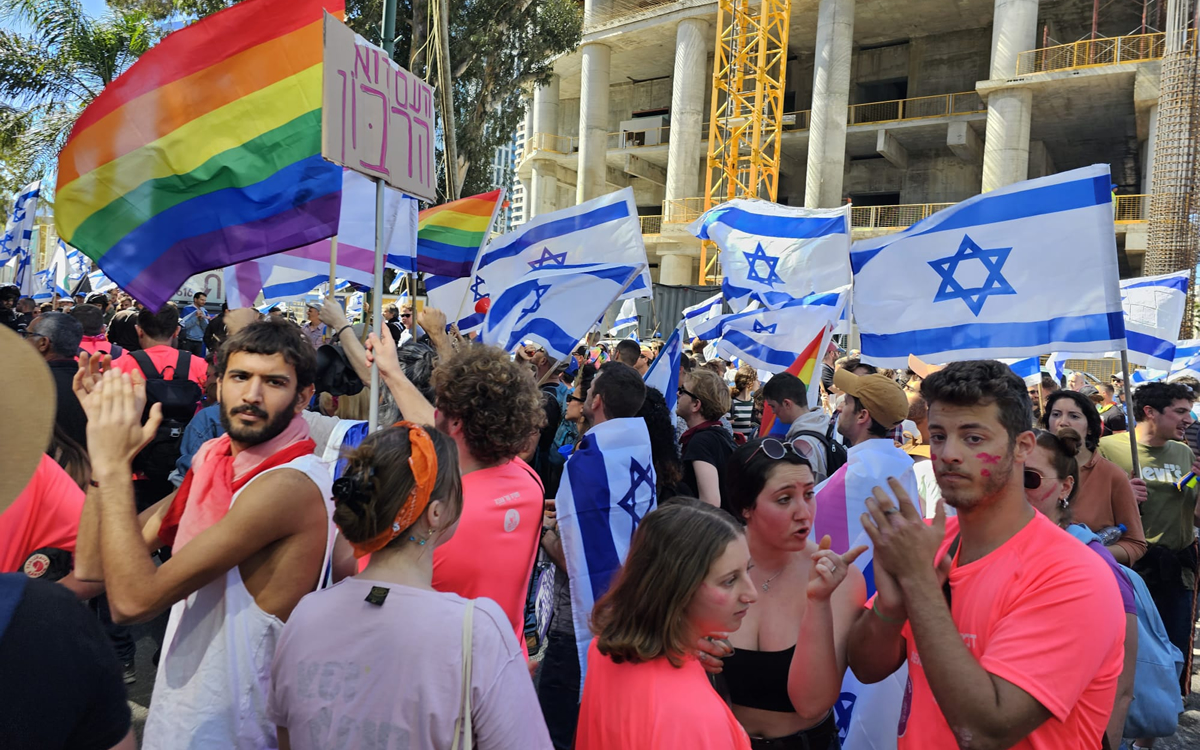
He described Oct. 7 as “the biggest failure of the Israeli state.” Roman also reiterated the constant threats of rockets from Gaza is the reason that his sister and her family moved away from Be’eri.
“My sister wasn’t willing to accept it and I wasn’t going to accept it, but what can we do,” he said. “We are not government officials, but for years the world has accepted, Israel has accepted that we are consistently under fire, and this is how it let it happen.”
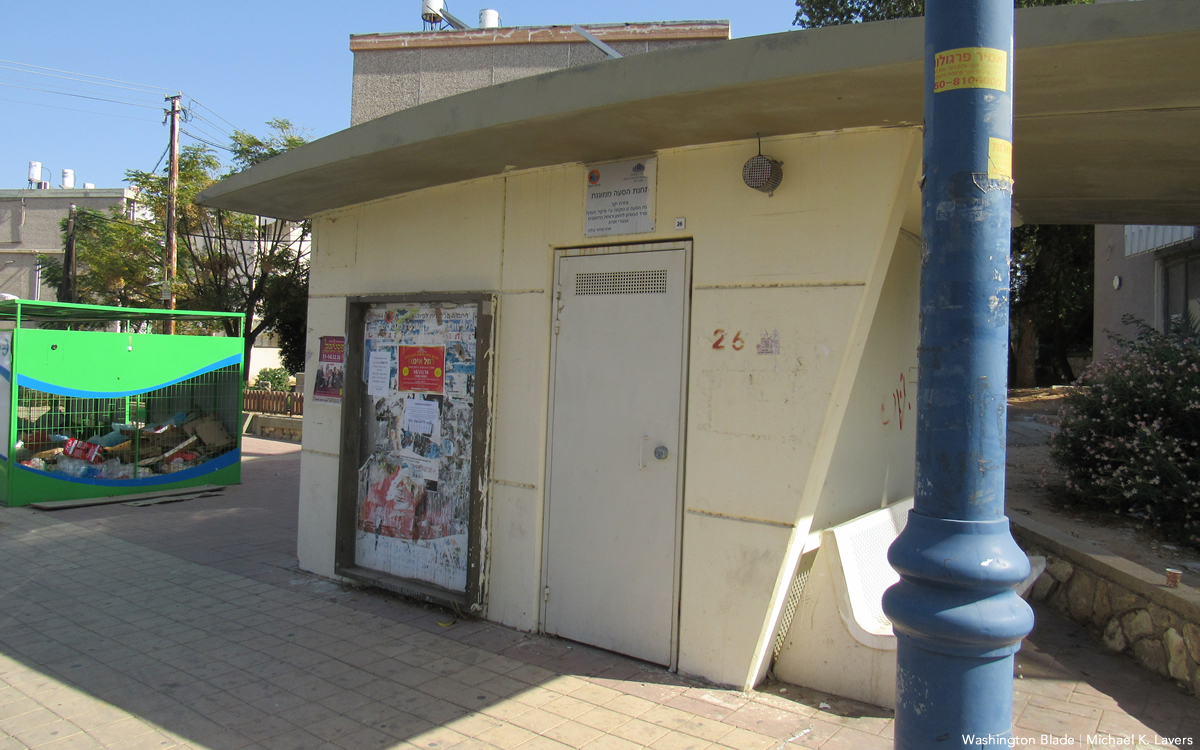
Roman told the Blade it is going to “take a while to control Hamas” and for the IDF to have military and political control in Gaza. He also said Hamas has a lot of support in the West Bank.
“It’s not something that you are being done with like a month or two,” said Roman. “It’s very necessary, but it’s going to be extremely hard.”
Roman told the Blade he is most concerned about what will happen once the war ends.
“There could be compromise with the Palestinians as a national entity, as a people, but there can be no compromise with the jihadists,” he said. “As long as they prevail and as long as they are in power and as long as they get so much support from the Palestinian people, you cannot even sit at the table and discuss. What can you discuss? They want you to be eliminated. There is no conversation.”
“We need to get to the point where the Palestinians realize that those two missions cannot be together,” added Roman. “They cannot wish to eradicate us and also get independence alongside us.”
He said Israelis also “need to get a lot of trust they didn’t have in the first place in the intentions and ambitions of the Palestinians and of the Arabs around us.”

Advocacy groups are demanding the Trump-Vance administration not to deport two gay men to Iran.
MS Now on Jan. 23 reported the two men are among the 40 Iranian nationals who the White House plans to deport.
Iran is among the countries in which consensual same-sex sexual relations remain punishable by death.
The Washington Blade earlier this month reported LGBTQ Iranians have joined anti-government protests that broke out across the country on Dec. 28. Human rights groups say the Iranian government has killed thousands of people since the demonstrations began.
Rebekah Wolf of the American Immigration Council, which represents the two men, told MS Now her clients were scheduled to be on a deportation flight on Jan. 25. A Human Rights Campaign spokesperson on Tuesday told the Blade that one of the men “was able to obtain a temporary stay of removal from the” 10th U.S. Circuit Court of Appeals, and the other “is facing delayed deportation as the result of a measles outbreak at the facility where they’re being held.”
“My (organization, the American Immigration Council) represents those two gay men,” said American Immigration Council Senior Fellow Aaron Reichlin-Melnick in a Jan. 23 post on his Bluesky account. “They had been arrested on charges of sodomy by Iranian moral police, and fled the country seeking asylum. They face the death penalty if returned, yet the Trump (administration) denied their asylum claims in a kangaroo court process.”
“They are terrified,” added Reichlin-Melnick.
My org @immcouncil.org represents those two gay men. They had been arrested on charges of sodomy by Iranian moral police, and fled the country seeking asylum. They face the death penalty if returned, yet the Trump admin denied their asylum claims in a kangaroo court process.
They are terrified.
— Aaron Reichlin-Melnick (@reichlinmelnick.bsky.social) January 23, 2026 at 8:26 AM
Reichlin-Melnick in a second Bluesky post said “deporting people to Iran right now, as body bags line the street, is an immoral, inhumane, and unjust act.”
“That ICE is still considering carrying out the flight this weekend is a sign of an agency and an administration totally divorced from basic human rights,” he added.
Deporting people to Iran right now, as body bags line the street, is an immoral, inhumane, and unjust act. That ICE is still considering carrying out the flight this weekend is a sign of an agency and an administration totally divorced from basic human rights. www.ms.now/news/trump-d…
— Aaron Reichlin-Melnick (@reichlinmelnick.bsky.social) January 23, 2026 at 8:27 AM
HRC Vice President of Government Affairs David Stacy in a statement to the Blade noted Iran “is one of 12 nations that still execute queer people, and we continue to fear for their safety.” Stacy also referenced Renee Good, a 37-year-old lesbian woman who a U.S. Immigration and Customs Enforcement agent shot and killed in Minneapolis on Jan. 7, and Andry Hernández Romero, a gay Venezuelan asylum seeker who the Trump-Vance administration “forcibly disappeared” to El Salvador last year.
“This out-of-control administration continues to target immigrants and terrorize our communities,” said Stacy. “That same cruelty murdered Renee Nicole Good and imprisoned Andry Hernández Romero. We stand with the American Immigration Council and demand that these men receive the due process they deserve. Congress must refuse to fund this outrage and stand against the administration’s shameless dismissal of our constitutional rights.”
Iran
LGBTQ Iranians join anti-government protests
Nationwide demonstrations over economy began Dec. 28

Protests erupted across Iran on Dec. 28 as public anger over the country’s collapsing country spilled into the streets. Members of the LGBTQ community are among those who have participated in them.
What began as demonstrations over rising living costs soon expanded into broader political dissent, with protesters chanting anti-government slogans and, in some cases, directly criticizing Supreme Leader Ayatollah Ali Khamenei. Authorities later imposed internet restrictions and launched a nationwide crackdown, according to human rights groups.
According to Reuters, an Iranian official said authorities have verified at least 5,000 deaths linked to the unrest, including about 500 members of the security forces. The official blamed what the government described as “terrorists and armed rioters” for the killings, a characterization that could not be independently verified due to severe restrictions on media access and internet connectivity.
The same official told Reuters that the final death toll was not expected to rise significantly. The official also alleged that Israel and armed groups outside Iran had supported and supplied those involved in the protests, claims that could not be independently verified.
Multiple sources told the Washington Blade that LGBTQ Iranians have taken part in the protests against the government, despite the heightened risks they face under the country’s strict laws that criminalize consensual same-sex sexual relations.
Arsham Parsi, founder and executive director of International Railroad for Queer Refugees, is from Shiraz, a city in southern Iran. He fled the country in 2005.
Parsi told the Blade a widespread demand for dignity and freedom is driving the uprising.
“It is important to say clearly: LGBTQ people are part of Iranian society, and they are part of this protest,” said Parsi. “Many are participating directly, despite facing risks that are often even greater than others — because in Iran they are already criminalized and targeted simply for who they are.”
“For LGBTQ Iranians, showing up — whether publicly or in underground ways — can carry life-and-death consequences,” he added.
Parsi told the Blade that members of the LGBTQ community with whom he has been in contact described a mix of fear, exhaustion, grief, and determination. He added that many of them feel this moment differs from previous waves of protest in Iran.
“The scope, the persistence, and the public rejection of fear feel qualitatively different — and for that reason, many Iranians inside and outside the country are hopeful that this will lead to real transformation, including regime change, and that Iranians will finally regain their freedom,” said Parsi. “Freedom is not free, and Iranians are paying its cost with their blood.”
Parsi said the government’s response to the protests has been severe; citing widespread blackouts, internet shutdowns, telephone disruptions, and heavy security presence on the streets. He said the communication restrictions have made it increasingly difficult to document abuses, locate missing people, coordinate medical assistance or verify information, warning that such conditions can allow violence to occur beyond public view.
Parsi said his organization, along with other trusted groups, has been sharing harm-reduction guidance whenever possible, particularly on digital safety, avoiding identification and minimizing risk. He added, however, there is no fully safe way to protest under a system that criminalizes identity and treats dissent as an enemy, noting LGBTQ people, women, students, labor activists, and ethnic and religious minorities are among those facing the greatest danger.
“I also want to be very clear about what kind of international involvement we are calling for. We are against foreign military intervention. Iranians must determine Iran’s future. But we do need international aid and serious diplomatic engagement that is grounded in human rights — not convenience,” said Parsi. “In the past, too often, when Iranians rose up, parts of the international community were distracted by negotiations, ‘promises’ from the Islamic Republic, or short-term deals, and the momentum for human rights was abandoned.”
“We hope this time no one is fooled,” he added. “The regime is desperately trying to manipulate the narrative through state media and misinformation — to change the course of events and confuse the international community. The world must be smart, vigilant, and principled: do not reward repression with legitimacy, and do not trade away Iranian rights for empty assurances.”
Parsi said the unrest should also be viewed within a broader regional context, noting Iran’s actions beyond its borders have long drawn criticism from governments and analysts who accuse the country of supporting armed groups and contributing to conflicts that have harmed civilians across the Middle East. He said a future Iran that respects human rights domestically and pursues less confrontational policies abroad could have implications not only for Iranians, but for regional and global stability as well, adding many within the country continue to protest despite the personal risks involved.
Soudeh Rad, co-founder and executive director of Spectrum, a France-based NGO that works with Farsi-speaking communities on gender equality and LGBTQ issues, noted to the Blade the latest wave of large-scale protests began in Tehran’s Grand Bazaar. They said LGBTQ people, like other marginalized and underrepresented communities, often suffer disproportionate burden under systems of entrenched discrimination.
“Images and testimonials prove the fact that protestors are from all classes, ages, communities, ethnicities, genders, and even with different abilities. This is not a higher-class protest. Obviously, our LGBTQIA+ siblings, of all political tendencies and belongings,” said Rad. “As we can imagine, if their SOGIESC (sexual orientation, gender identity, gender expression, and sex characteristics) identity is revealed at the detention centers and prisons, they will be subject to a higher and more intense torture. Police and militia have not hesitated a moment to shoot protestors to kill them. Snipers have been spotted targeting people. Reported numbers of killed and injured people go as high as thousands.”
Rad said recent protest movements have produced gradual social changes in Iran even without formal legal reforms. They cited the “Women, Life, Freedom” movement, noting observers report growing noncompliance with compulsory hijab rules and increased solidarity among ethnic and long-marginalized communities that include Baluchis, Kurds, and Azeris. Rad described the current unrest as part of an ongoing process of social transformation.
Shadi Amin, a director at the LGBTQ rights group 6Rang, said the full impact of the crackdown on LGBTQ activists remains unknown, citing internet shutdowns and limited access to detention centers that have hindered documentation. She said LGBTQ people often face additional barriers to recognition as victims of human rights abuses, because discussions of sexual orientation and gender identity are frequently sidelined during periods of unrest. This omission leaves many cases unacknowledged or erased from public narratives.
Amin also pointed to Iran’s legal framework, under which consensual same-sex sexual relations remain punishable by death, as a key factor contributing to the long-standing invisibility of LGBTQ people.
She said the absence of official data makes it impossible to determine how many LGBTQ individuals may have been killed, detained or subjected to abuse during the protests, adding that this lack of recognition has persisted for decades. Amin told the Blade the internet shutdown has also severed regular communication between advocacy groups and LGBTQ people inside Iran, cutting off counseling services and daily contact that had previously provided limited insight into conditions on the ground. She said the loss of communication has made it increasingly difficult to assess the safety of individuals or confirm who remains in detention or has gone missing.
“I have spent almost my entire life fighting for freedom and democracy. Even if we have not yet achieved our ultimate goal, we have made life harder for our oppressors and safer for our community—and that in itself matters,” Amin noted to the Blade. “We seek change and have called for international intervention to uphold the responsibility to stop crimes against humanity, including through Responsibility to Protect (a U.N. principle adopted in 2005); however, top-down regime change or foreign military intervention would silence the movement.”
“In times of war, weapons — not people — have the final word, and social movements are pushed aside. This is one of our core concerns,” she added. “Another is the risk that even if the current regime is overthrown, it could be replaced by another form of dictatorship — such as a monarchic project represented by the son of the former shah, who has lived in the United States for nearly five decades and lacks democratic legitimacy.”
Amin said LGBTQ activists fear being overlooked amid the broader unrest, emphasizing concerns that ongoing repression and communication blackouts risk pushing LGBTQ experiences further out of public view. She said maintaining international attention remains critical for communities that are often forced into invisibility during periods of crisis.
Matt Forouzandy, president of the 30-Morg Queer Liberation Committee, an NGO focused on LGBTQ issues affecting Iranians inside the country and in the diaspora, confirmed LGBTQ Iranians have participated in the protests since they began.
He said some queer Iranians publicly expressed support for Crown Prince Reza Pahlavi on social media, sharing posts alongside Iran’s lion and sun flag, while acknowledging the risks they faced before joining demonstrations.
Pahlavi is the son of Iran’s last monarch, Mohammad Reza Shah Pahlavi, who was overthrown during the 1979 Islamic Revolution. Living in exile, he has in recent years emerged as a symbolic opposition figure for some Iranians abroad, though his role and influence inside the country remain contested.
Forouzandy said LGBTQ people inside Iran have, in some cases, participated more openly in the protests than many observers might expect, citing years of compounded repression under the regime. He said many queer activists use their real names and photographs on X and other social media platforms, rather than operating anonymously. Forouzandy added LGBTQ participants across different regions of the country have publicly expressed opposition to the current system.
Forouzandy said the future legal and civil status of LGBTQ people in Iran would depend on the political direction taken if the current system were to change, including whether outcomes reflect domestic demands or outside influence. He said some protesters have expressed support for a return to monarchical rule, arguing that such a shift could affect prospects for civil rights, though the outcome remains uncertain.
“Iranians in the diaspora — including LGBTQ+ individuals — are doing everything within their capacity to support those inside the country,” said Forouzandy. “However, the most decisive force remains the people inside Iran themselves. Their courage, determination, and collective will are what ultimately shape the outcome.”
“This is especially true for LGBTQ+ Iranians, who are fighting simultaneously for the liberation of their homeland and for full and equal civil rights within a future free Iran,” he added.
Iran
Grenell: ‘Real hope’ for gay rights in Iran as result of nationwide protests
Former ambassador to Germany claimed he has sneaked ‘gays and lesbians out of’ country

Richard Grenell, the presidential envoy for special missions of the United States, said on X on Tuesday that he has helped “sneak gays and lesbians out of Iran” and is seeing a change in attitudes in the country.
The post, which now has more than 25,000 likes since its uploading, claims that attitudes toward gays and lesbians are shifting amid massive economic protests across the country.
“For the first time EVER, someone has said ‘I want to wait just a bit,” the former U.S. ambassador to Germany wrote. “There is real hope coming from the inside. I don’t think you can stop this now.”
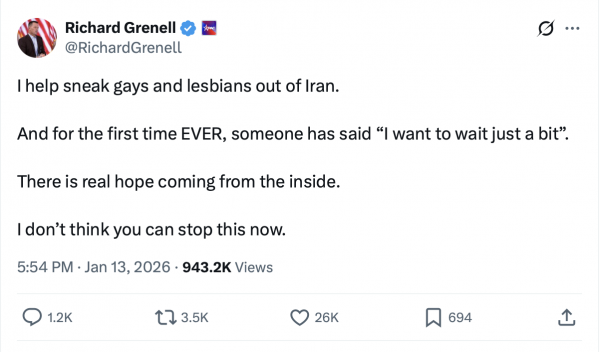
Grenell has been a longtime supporter of the president.
“Richard Grenell is a fabulous person, A STAR,” Trump posted on Truth Social days before his official appointment to the ambassador role. “He will be someplace, high up! DJT”
Iran, which is experiencing demonstrations across all 31 provinces of the country — including in Tehran, the capital — started as a result of a financial crisis causing the collapse of its national currency. Time magazine credits this uprising after the U.N. re-imposed sanctions in September over the country’s pursuit of nuclear weapons.
As basic necessities like bread, rice, meat, and medical supplies become increasingly unaffordable to the majority of the more than 90 million people living there, citizens took to the streets to push back against Iran’s theocratic regime.
Grenell, who was made president and executive director of the John F. Kennedy Center for the Performing Arts last year by Trump, believes that people in the majority Shiite Muslim country are also beginning to protest human rights abuses.
Iran is among only a handful of countries in which consensual same-sex sexual relations remain punishable by death, according to the Death Penalty Information Center.
-

 India5 days ago
India5 days agoActivists push for better counting of transgender Indians in 2026 Census
-

 Advice4 days ago
Advice4 days agoDry January has isolated me from my friends
-

 District of Columbia4 days ago
District of Columbia4 days agoCapital Pride reveals 2026 theme
-

 National4 days ago
National4 days agoAfter layoffs at Advocate, parent company acquires ‘Them’ from Conde Nast




















